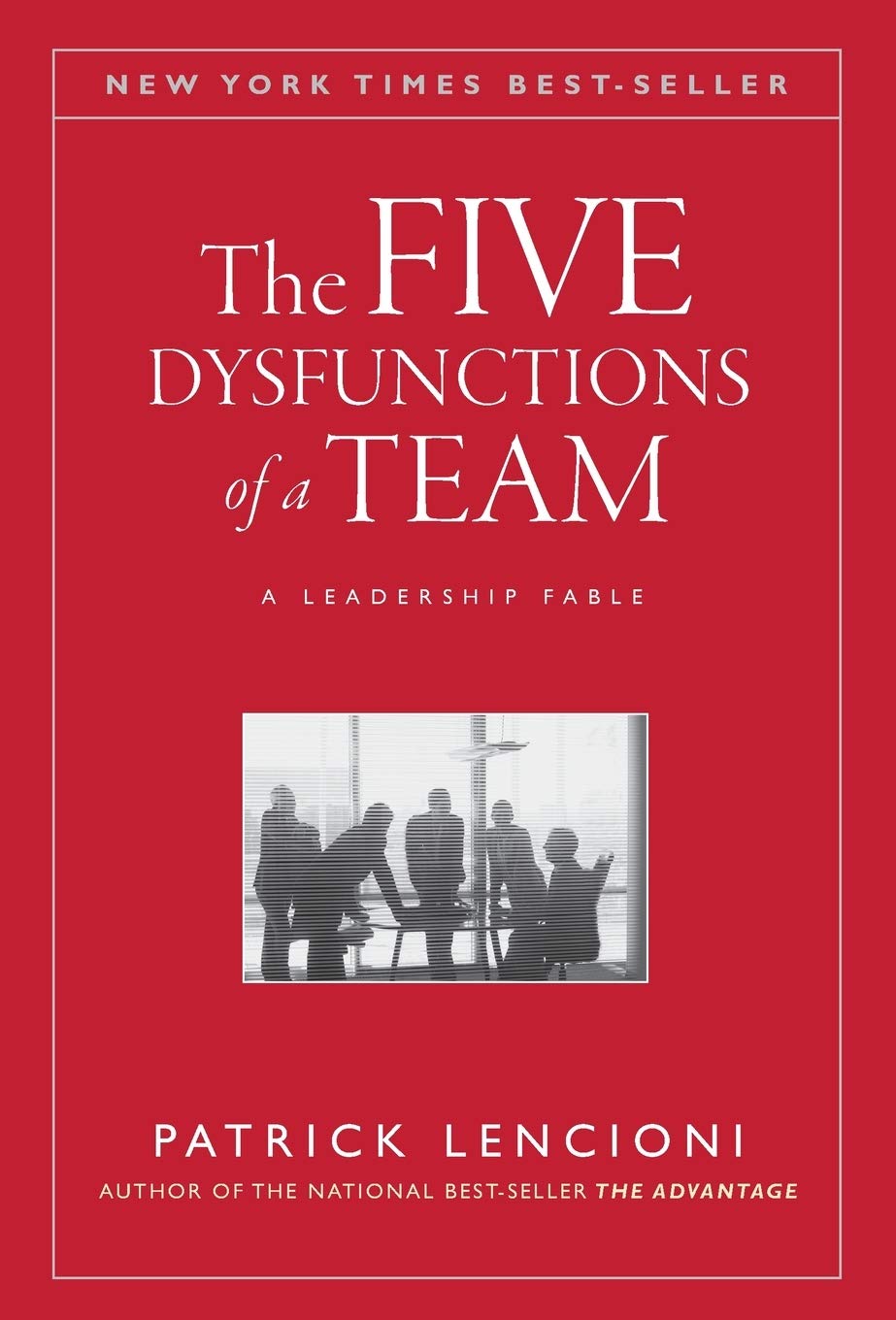DoF Bookclub: The Five Dysfunctions of a Team

I recently sat down with Miska Katkoff and Sophie Vo to talk about a book that I really enjoyed and often recommend called The Five Dysfunctions of a Team, by Patrick M. Lencioni. It’s a management fable about a team’s struggles to work as a team, and how they used Lencioni’s five behaviors model to become an exceptional and effective team.
Here is the pyramid of the Five Dysfunctions of a Team. You start from trust, since none of the above will happen if you don’t eliminate dysfunctions that create the lack of trust, lack of conflict, etc.

With Sophie and Miska, we wanted to relate the message of the book to how to run games companies. Here are some highlights from our discussion.
Investors invest in teams, so why don’t studios invest in teams?
Miska brought up an interesting angle. The early-stage VCs always bet their money on teams, and they view that as the only guarantee that something would come out of the company.
Sophie talked about flywheel of investing in teams. That could look something like this: you harness a growth mindset in the team, then you continually build trust and facilitate healthy conflict, which then leads to more commitment to tasks, even hard ones, with the needed peer-to-peer accountability. All this leads to results. And the flywheel keeps on turning, the growth mindsets, questions your existing beliefs, and you want to seek new information, you continue building trust. And the flywheel keeps on turning.
Healthy conflict
Joakim: “[You get unhealthy conflict] if people are approaching the conflict from a place where they’re not explaining the reasoning behind their opinions. They’re sort of keeping that to themselves. So I think reasoning is always like a superpower that everybody should also develop when they’re entering healthy conflict.”
Sophie: “[Unhealthy conflict comes up when] you have people trying to be right in the discussion or proving a point, instead of focusing on the problem we’re trying to solve here as a group. I talk about healthy conflict in my team handbook, with I share in my Masterclass. There we have listed the desired ways to approach conflict.”
Milestones for the team
Sophie: “When you are not clear about your goals and individual goals will actually take priority in the collective goals.”
Miska brings up an important topic: “In Finnish studios, over communication has traditionally been very poor. Because they culturally find conversation unimportant. It’s more important to do things than to talk about things. As the organization grows, it’s very important to keep on emphasizing where we’re heading. And if you feel that you’ve said it five times, ten times, it doesn’t matter. People forget so they need to be reminded.”
Content mentioned in this episode.
The Five Dysfunctions of a Team
Building teams for the long term: Antifragile teams (my review on Sophie’s MasterClass)





